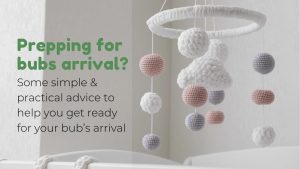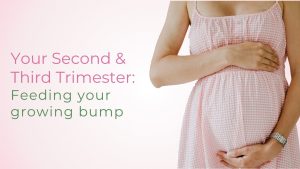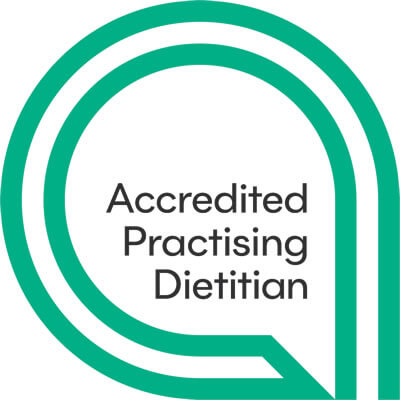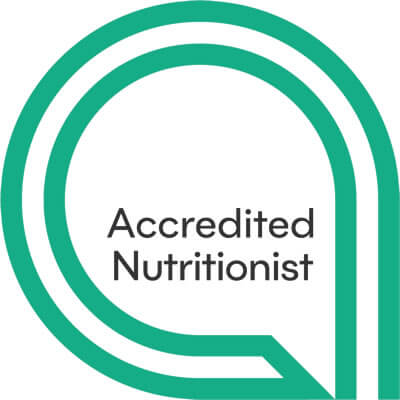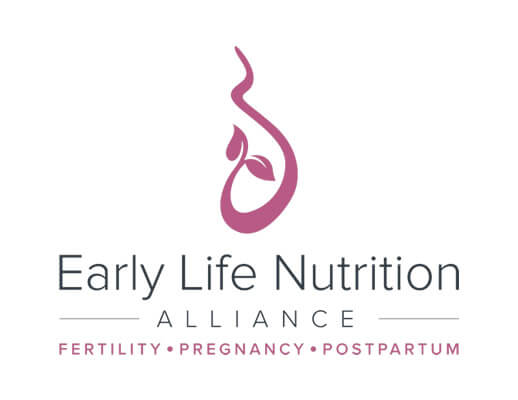Foods to Avoid During Pregnancy
Navigating food safely for your Baby’s Health
As you begin your delightful journey of expanding your family, you're faced with the crucial task of understanding which foods to avoid during pregnancy. Amidst the sea of dietary dos and don'ts, our goal is to make this information clear and manageable for you.
Pregnancy is a journey like no other. It's a time of dreams, anticipation, and overwhelming excitement as you prepare to welcome your little one into the world. Amidst all the joy, it's natural to have concerns about what's best for you and your baby when it comes to food. In the crucial phase of the first 1000 days of life, understanding and navigating food safely is paramount. The choices you make at the dining table are no longer just about your health but also about the well-being of the little life growing inside you. That's why knowing the foods to avoid during pregnancy is as important as knowing what to embrace.
With a range of advice available, determining which foods could be harmful during pregnancy might seem daunting. It's not just about avoiding certain types of seafood or steering clear of undercooked meats; it's about creating a balanced diet that supports both your health and your baby's development.
At Simple Steps Nutrition we aim to provide clear, concise guidance on the foods to avoid during pregnancy. From unpasteurised dairy that may pose a risk of bacterial infections to certain caffeine limits, we cover all the essentials.
Why is Food Safety Important During Pregnancy?
Understanding food safety during pregnancy is crucial, and as a fully qualified and experienced Dietitian and nutritionist, I'm here to help guide you on through this essential aspect of prenatal care. Think of your body right now as a nurturing ground. It's doing double duty: taking care of you and your growing baby. The foods you choose to eat play a significant role, not just in your own health but in your baby's development too.
Prioritising food safety means more than just choosing healthy options. It's about protecting both you and your baby from potential risks posed by certain foods. Some of these can carry harmful bacteria or contaminants, which might be a minor issue for you but can be significantly risky for your developing baby. These risks aren't always about immediate effects; they can sometimes have long-term impacts on your child's health.
In our discussions, we'll focus on not just avoiding specific foods but also on how to handle and prepare your food safely. This approach is about more than caution; it's about making informed, mindful choices for the safety and well-being of your little one.
As your guide on this journey, I want you to feel empowered and confident in your food choices. It's not about limiting your diet with endless restrictions; it's about ensuring that every meal contributes positively to the nurturing environment your body is providing. Let's embark on this path with the right knowledge and practices, keeping both you and your baby safe and healthy.
The Information Overload
We understand that the flood of information about what to eat and what to avoid can be overwhelming. Everyone seems to have advice, and it's not always consistent. It's easy to get lost in a whirlwind of "dos" and "don'ts." But remember, your journey is unique, and what works for one person may not be the right choice for you.
Foods to Avoid During Pregnancy for Safe Consumption
While pregnant, it's beneficial to eat a diverse range of healthy foods for both your well-being and your baby's development. Nevertheless, certain foods should be avoided during pregnancy as they could cause illness or pose a risk to your baby. Additionally, while some foods are generally safe, it's important to moderate their consumption.
High-Mercury Seafood:
Importance: While seafood is a rich source of protein and omega-3 fatty acids beneficial for your baby's brain and eye development, some contain high levels of mercury, which can harm your baby's developing nervous system.
- Fish to Avoid: While fish is a great source of nutrients, it's important to limit high-mercury fish like shark, swordfish, marlin, billfish, deep-sea perch, catfish, and orange roughy. Opt for safer fish options.
- Safe Choices: Opt for low-mercury options like anchovies, catfish, cod, herring, light canned tuna, Pacific oysters, pollock, salmon, sardines, shad, shrimp, tilapia, and trout. Limit white tuna (albacore) to 6 ounces weekly.
Raw or Undercooked Seafood:
- Risks: Raw fish and shellfish, such as sushi, sashimi, ceviche, and raw oysters, scallops, or clams, may contain harmful bacteria or viruses.
- Safe Alternatives: Choose canned, shelf-stable, or well-cooked seafood. Be cautious with smoked seafood and avoid refrigerated, uncooked seafood varieties.
Proper Cooking of Seafood:
- Temperature Guidelines: Ensure fish reaches an internal temperature of 63 C. Cook shrimp, lobster, scallops until milky white, and clams, mussels, oysters until shells open.
Meat, Poultry, and Eggs:
- Cooking Instructions: Fully cook all meats and poultry. Avoid undercooked or raw eggs and products made with them.
- Listeria Prevention: Cook hot dogs and luncheon meats until steaming hot or avoid them to prevent listeria infection.
Unpasteurised Foods:
- Dairy Products: Avoid unpasteurised milk products, which could lead to foodborne illnesses.
- Soft Cheeses: Exclude soft cheeses like brie, feta, and blue cheese unless pasteurised.
Fruits and Vegetables:
- Cleaning: Thoroughly wash all raw fruits and vegetables.
- Sprouts: Cook sprouts thoroughly to eliminate harmful bacteria.
Caffeine and Herbal Tea:
- Caffeine Limit: Restrict caffeine intake to less than 200 mg per day during pregnancy.
- Herbal Tea Caution: Avoid herbal teas unless approved by your healthcare provider.
Alcohol Consumption:
- Risks: No alcohol level is safe during pregnancy. Alcohol consumption can lead to miscarriage, stillbirth, and foetal alcohol syndrome.
Understanding the Risks of Eating These Foods During Pregnancy
After discussing the foods to avoid during pregnancy, it's crucial to understand the associated risks of consuming any of these foods. Pregnancy is a delicate time when the dietary choices you make not only affect your health but also have a profound impact on the development and well-being of your unborn baby. Certain foods can pose potential health risks due to the presence of harmful bacteria, high levels of certain chemicals, or their overall composition. Being aware of these risks is an essential step in ensuring a safe and healthy pregnancy journey for both you and your baby.
Eating certain foods during pregnancy can pose various risks, including:
- Developmental Issues in the Baby: Exposure to harmful substances like mercury can lead to developmental delays and brain damage in the fetus.
- Foodborne Illnesses: Bacterial and parasitic infections, such as listeriosis and toxoplasmosis, can cause severe complications like miscarriage, stillbirth, premature delivery, and serious health issues in newborns.
- Gestational Complications: Consuming unpasteurized dairy products or foods containing harmful bacteria like Listeria can lead to infections that are dangerous for both the mother and the baby.
- Foetal Alcohol Spectrum Disorders (FASD): Alcohol consumption during pregnancy can result in a range of lifelong physical, behavioural, and intellectual disabilities in the child.
- Miscarriage and Preterm Birth: High intake of caffeine has been linked to increased risks of miscarriage, low birth weight, and preterm birth due to its stimulant and diuretic properties.
- Gestational Diabetes and Excessive Weight Gain: Eating foods high in sugar and fat can lead to excessive weight gain, gestational diabetes, and complications during childbirth.
- Impaired Foetal Growth and Development: Poor dietary choices can lead to inadequate nutrition, affecting the baby's overall growth and development.
- Hypertension and Preeclampsia: Certain foods, especially those high in sodium or unhealthy fats, can increase the risk of high blood pressure and preeclampsia.
These risks underline the importance of a balanced and safe diet during pregnancy, and consultation with a healthcare provider is recommended for tailored dietary advice.
Focus on What You Can Eat, not on the foods to Avoid
Now, let's shift our focus to the positive side of this journey. Yes, there are foods to avoid, but there are also a wide range of delicious and nutritious options to embrace. Your pregnancy diet can be a delightful adventure filled with flavours, colours, and nourishment.
Foods to Enjoy During Pregnancy
Wholegrains: Embrace whole wheat, brown rice, quinoa, and oats. These whole grains provide sustained energy throughout the day and are packed with fibre to keep you regular and support your gut health. Plus, they make delicious and filling meals!
Colourful Fruits: Explore a rainbow of fruits like berries, oranges, and kiwi. They not only bring a burst of natural sweetness to your palate but also provide antioxidants and essential dietary fibre.
Leafy Greens: Your pregnancy pals! Leafy greens are loaded with folate, iron, and essential vitamins and minerals that your growing baby needs. So, pile on the spinach, kale, and collard greens.
Protein Power: Ensure you're getting well-cooked lean meats, poultry, fish, eggs, and plant-based sources like tofu and legumes. These foods provide the building blocks necessary for your baby's growth and development.
Healthy Fats: Opt for cooked fish and seafood, avocado, nuts, seeds, and olive oil. These sources offer essential omega-3 fatty acids crucial for your baby's brain and visual development.
Dairy Delights: Greek yoghurt, milk, and cheese (or suitable alternatives if you're lactose intolerant or vegan) are excellent sources of calcium and protein, supporting both your and your baby's bone health.
Importance of Prenatal Vitamins in Complementing Dietary Intake During Pregnancy
In the context of avoiding certain foods for safety during pregnancy, the role of prenatal vitamins becomes increasingly significant. While it's essential to navigate food safely during pregnancy, it's equally crucial to ensure comprehensive nutritional intake. Prenatal vitamins are designed to bridge the gap that might occur due to dietary restrictions, offering a balanced supply of vital nutrients.
These vitamins are more than just supplements; they are a crucial component of prenatal care. They typically include key nutrients such as folic acid, vital for preventing neural tube defects, and iron, which supports the baby’s growth and development while preventing maternal anaemia. In instances where dietary intake of certain nutrients is limited – for example, omega-3 fatty acids due to avoiding high-mercury fish – prenatal vitamins can provide a safe and effective alternative.
It’s important to understand that prenatal vitamins complement, rather than replace, a healthy diet. They ensure that even with the necessary dietary adjustments during pregnancy, both the mother and the developing baby have access to all the essential nutrients for a healthy pregnancy outcome. As always, it’s advisable to consult with a healthcare provider before starting any supplement regimen, to tailor the choice of prenatal vitamins to your specific nutritional needs and pregnancy journey.
A Compassionate Reminder
In the midst of all the dietary guidelines and advice, please remember that it's not about perfection; it's about doing your best. While there are foods to avoid for the safety of your baby, we urge you to focus on the foods you can eat, savour, and enjoy.
Ask for Help!
If you ever feel lost or confused, know that you don't have to navigate this journey alone. Our qualified Dietitian can help you make informed choices that suit your unique needs and preferences. We can provide the clarity and reassurance you need, removing any anxiety around food.
Mum to be, remember that your well-being and your baby's health are the most important thing. You've got this, and we're here to support you every step of the way!
FAQs for Foods to Avoid During Pregnancy: Navigating Food Safely
Yes, you can eat seafood, but it's important to choose low-mercury options like salmon, trout, anchovies, and light canned tuna. Limit high-mercury fish like king mackerel, swordfish, and bigeye tuna.

